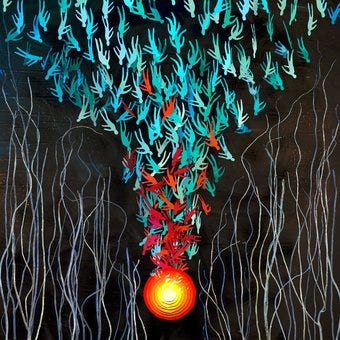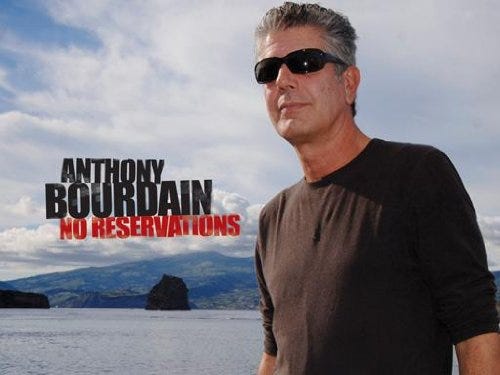
If you read my last post on lo-fi hip hop beats, you probably are aware that I am tired as hell, nearly on the verge of mental and physical collapse. That being said, I do not have an essay this week (my brain needs a break before it spontaneously combusts). In lieu of a typical blog post, here is a list of media that gave me life this week.
Podcasts
The Longform Podcast (Episode 364: Nicholas Quah)

An existential episode on journalist Nicholas Quah’s unconventional career journey from being fired at BuzzFeed to starting Hot Pod, a successful newsletter on the podcast industry with over 20,000 subscribers. Listening to the host Max Linsky challenge Nicholas on his doubts and insecurities as a media professional felt like eavesdropping halfway through the thick of a therapy session. It was honest, vulnerable, and at times, heartbreaking. I highly recommend this episode to anyone who feels stuck in their career and is looking for inspiration.
Extra Spicy (Can Free Fridges Avoid “Poverty Porn”?)

If you are an avid Instagram user, you have probably seen images of community fridges in cities across the US, ones that provide fresh food to food insecure communities for free. At first glance, it is a simple yet effective act of charity, but to what extent? Hosted by San Francisco Chronicle food reporters Soleil Ho and Justin Phillips, Extra Spicy’s latest episode ‘Can Free Fridges Avoid ‘Poverty Porn?’ complicates the politics of community fridges. This episode offers a critical perspective on the performative nature of these fridges, and its limitations as vehicles for social change. If this episode leaves you feeling angry and confused, then the message was delivered. I recommend this episode to anyone interested in food equity and social justice.
Get WIRED (Animal Activists, Part 1: The Slaughterhouse)

We are all familiar with animal rights activism, whether it manifests through mass demonstrations on the street, meat factory strikes, or gruesome PETA advertisements. But what about activism mediated by virtual reality (VR)? Hosted by senior staff writer at WIRED Lauren Goode, this episode of Get WIRED investigates Direct Action Everywhere (or DxE), a radical animal rights activist group that uses VR to transport participants into a slaughterhouse as a way to raise awareness on animal cruelty in the meatpacking industry. The story blew my mind, leaving me with food for thought on the potential for technology to reinvent traditional forms of direct action. An eye-opening episode for anyone interested in gadgets and social movements. I cannot wait for part two.
Music
Lianne La Havas - Lianne La Havas (2020)

I recently rediscovered my love for Lianne La Havas after watching her NPR Tiny Desk (Home) concert she filmed during quarantine. Reminded of how talented she is, I was delighted to learn that she released a self-titled album in early August. A story of overcoming heartbreak, ‘Lianne La Havas’ was inspired by a relationship that ended between the artist and a music producer. Turning grief into art, ‘Lianne La Havas’ pulls you in every direction, a perfect listen for when you just want to feel something.
Bright Eyes - Down in the Weeds, Where the World Once Was (2020)

Am I living in the 2000s? Because suddenly, I feel like an emo, angsty teenager again. Bright Eyes’ new album Down in the Weeds, Where the World Once Was blessed my ears with nostalgia for my adolescence. A Bright Eyes fan since “First Day Of My Life” and “The Calendar Hung Itself” were featured on early 2010 indie coming-of age films, I was shocked when I discovered they released a new album. Ten years later, it did not disappoint. If I’m Wide Awake, It’s Morning and Fevers and Mirrors (my two favorite Bright Eyes albums) had a baby, and that baby was fed antidepressants, Down in the Weeds, Where the World Once Was would be the outcome. Highly recommend to anyone who dares to relive their darkest, most formative years.
TV Shows
Terrace House: Boys and Girls in the City (2015-2016) - Streaming on Netflix

Terrace House is a Japanese reality TV series where six rotating strangers — 3 men and 3 women — live together in a big, luxurious house. Similar to shows like Big Brother or Are You The One?, cameras are planted around the house, giving viewers, as well as a panel of Japanese commentators, a glimpse into the conversations, relationships, and drama that unfold among the members. After watching episodes sporadically for three months, I finally finished the ‘Boys & Girls in the City’ season. 46 episodes later, I am now fully invested in their lives, following my favorite members on Instagram and keeping up-to-date with the post-series gossip. A collection of vulnerable conversations, tense relationships, and ethically-charged reveals — this season is an emotional rollercoaster, one that is impossible to not binge. I recommend ‘Boys and Girls in the City’, and pretty much any season of Terrace House to those who seek a mindless, entertaining reality TV series absent of the over-the-top bickering and melodrama present in American reality TV.
Anthony Bourdain: No Reservations (2005-2012) - Streaming on Hulu

What better way to satisfy your longing for travel during quarantine than to vicariously live through Anthony Bourdain’s adventures? Produced before CNN’s Anthony Bourdain: Parts Unknown, Anthony Bourdain: No Reservations depicts the provocative, rebel journalist at his prime. ‘Ozarks’, an episode on rural Missouri traditions, is one I cannot stop thinking about, encompassing the essence of Bourdain’s reporting style. In those 42 minutes, viewers bear witness squirrel and racoon served as entrees, arm wrestling competitions in local bars, and a hunting expedition that goes terribly wrong — sprinkled with Bourdain’s sexual innuendos throughout. If you want to see how rural, die-hard Americans in the midwest live, this episode is perfect for you. And if you enjoy travel shows that are daring without losing intellectual rigor, you will definitely like this series.
Articles
‘These Uber Drivers Are Stressed. Archery Soothes Them’ by Raul Vilchis: A fascinating, eye-opening look into how Bhutanese Uber drivers in New York City struggling to make ends meet participate in archery as a pastime for escape and cultural preservation.
‘How a Joke Twitter T-Shirt Exposes a Frustration Many Asian Women Share’ by VICE Munchies writer Bettina Makalintal: A thought-provoking article that unpacks the viral “I don’t need to know about your Asian wife” T-shirt and the neo-colonial undertones of that message.
‘What is MasterClass Actually Selling?’ By Carina Chocano: A deep dive into MasterClass — an online platform that offers classes taught by Natalie Portman, Martin Scorsese, and other A-list celebrities — and why it has become so popular among millennials during quarantine.



